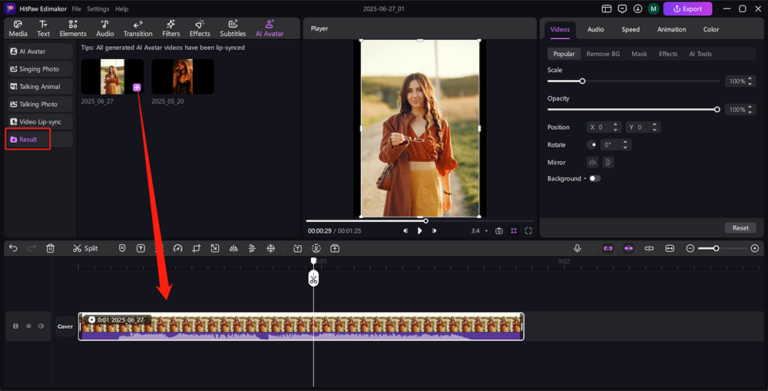
What is Fapello and Why Is Everyone Talking About It?
Fapello has rapidly become one of the most searched and discussed platforms in online adult entertainment. Known for hosting user-uploaded and leaked adult content, the site has stirred waves across the internet—both for its explosive popularity and its ethical and legal concerns. But beyond the sensational headlines lies a complicated ecosystem of content sharing, privacy breaches, and a broader conversation about consent in the digital age. This article unpacks the facts around Fapello, explores the core controversies, and evaluates its impact on creators, users, and online ethics.
Fapello’s Core Function: A Platform or A Problem?
At its core, Fapello acts as a repository for adult content that’s either shared publicly by users or, in many cases, leaked without the subject’s consent. Unlike mainstream adult sites that operate within a regulated framework and require proper licensing or verification, Fapello thrives on anonymous uploads, making it a hotbed for ethical concerns. While some users see it as a free source of exclusive content, the underlying issue is the often non-consensual nature of the material—frequently involving OnlyFans models, streamers, influencers, or private individuals.
The Popularity Behind the Controversy: Why Fapello Grew Fast
The allure of Fapello is largely due to its offering of ‘exclusive’ content that users would typically pay for on other platforms like OnlyFans or Patreon. Fapello bypasses that paywall, offering access to leaked content without cost. In today’s viral-driven culture, where content spreads faster than ever, platforms like Fapello capitalize on curiosity and demand. Their simplistic UI, fast-loading videos, and anonymous access have only added fuel to the fire, allowing the site to scale rapidly despite its questionable foundation.
Impact on Content Creators: More Harm Than Exposure
For many creators, especially adult performers and influencers, Fapello represents a serious threat to their livelihood and privacy. Content that was intended for paying audiences ends up publicly accessible without permission, drastically reducing the value of their subscription models. Even worse, private individuals who never intended to share adult content may find themselves exposed online. This creates mental health challenges, financial loss, and opens doors to harassment. The emotional and reputational damage can be lifelong, with little legal recourse available in many regions.
Legal Implications and Grey Areas in Digital Law
While some countries have clear laws regarding revenge porn and non-consensual sharing, enforcement remains a major challenge. Fapello’s operation outside major jurisdictions makes it difficult for authorities to hold anyone accountable. Furthermore, the site’s use of anonymous upload features complicates the ability to track perpetrators. Digital rights activists argue that this loophole must be closed, pushing for stronger international cooperation and improved digital law enforcement. Until that happens, platforms like Fapello will continue to exploit the legal grey zones of the internet.
Table: Legal Framework Comparison in Key Regions
| Country | Revenge Porn Laws | Platform Accountability |
| United States | Yes (State-level) | Medium |
| United Kingdom | Yes | High |
| Germany | Yes | High |
| Pakistan | Limited | Low |
| Russia | Vague/None | Low |
A Closer Look at How Content is Leaked on Fapello
Content on Fapello often originates from data breaches, hacked cloud storage, or insider leaks from private subscription platforms. Once content is uploaded, it’s shared widely across social platforms like Reddit, Telegram, or even Twitter. Fapello essentially acts as an aggregator, hosting high-traffic content and allowing Fapello users to stream or download without any form of verification. The entire cycle thrives on anonymity, making it nearly impossible to track down the original leakers or remove the content once it’s gone viral.
Comparison: Fapello vs Legal Adult Platforms
| Feature | Fapello | OnlyFans |
| User Verification | No | Yes |
| Consent from Creators | No (Mostly Leaked) | Yes |
| Revenue for Creators | None | Subscription-based |
| Legal Compliance | Low | High |
| Upload Moderation | Minimal | Strict |
The Role of Social Media in Spreading Fapello Content
Social media platforms play a significant role in Fapello’s popularity. Leaked clips and images often go viral on Reddit threads, Discord servers, and Telegram groups. Influencer and celebrity leaks receive massive engagement, fueling traffic toward Fapello. Despite community guidelines against explicit content, enforcement remains lax, especially in private groups. This raises questions about how much responsibility tech giants should bear in stopping the spread of stolen or leaked adult material.
Ethical Dilemmas: Viewer Responsibility and Consent Culture
One of the biggest debates around Fapello is viewer complicity. If users know content is leaked but continue watching or sharing, are they just as accountable? This moral grey area remains unresolved. Ethical internet usage demands more than just legal compliance—it requires cultural maturity. Experts suggest developing a ‘consent culture’ where users actively reject content that lacks clear consent from creators. The burden should not lie solely with the platform but also with users who keep these ecosystems alive.
Hooked by Curiosity, Trapped in Exploitation
Fapello thrives because it taps into something very human—curiosity and desire for exclusivity. But behind that initial thrill lies a darker reality of exploitation and harm. Once someone is exposed on such platforms, the content is archived, downloaded, and circulated endlessly. There’s no easy delete button. The affected individuals often suffer in silence, with very little support from the law or the platforms. Recognizing this harsh reality is the first step toward meaningful change
Digital Hygiene: How to Protect Yourself From Being Exposed
With the rise of platforms like Fapello, it’s critical for individuals—especially influencers and creators—to take steps to protect their digital privacy. This includes using encrypted cloud storage, two-factor authentication, watermarking content, and regularly checking for data breaches. Though no method is foolproof, being proactive can significantly reduce risks. Parents and educators also have a role in spreading awareness among teens and young adults about safe digital habits.
Why Takedowns Rarely Work on Fapello
Once content is uploaded on Fapello, removing it is a monumental task. The platform rarely responds to DMCA or takedown notices. In many cases, even if content is removed, mirrors of it appear on other clone sites within days. This is due to automated scraping tools that replicate content across adult leak networks. Legal action becomes expensive, slow, and mostly ineffective—especially if the site operates offshore in unregulated digital territories.
What Authorities and Activists Are Doing About It
International digital rights groups have started raising red flags against sites like Fapello. There are calls for a global framework that holds such platforms accountable regardless of location. Some countries are also pushing legislation that makes tech platforms liable for hosting leaked or non-consensual adult content. Activists advocate for more tech tools that help creators trace and automatically report content leaks. Though progress is slow, the momentum is growing.
Should You Visit Fapello? A Hard Reflection
Before visiting a site like Fapello, it’s worth asking: do you know if the person in the video gave permission? Do you know if they’re being exploited? Do you want to support a platform built on unethical foundations? The answers often point in one direction. Awareness is the first step, but action must follow—by reporting, avoiding, and educating others about the dangers of such platforms.
Takeaways About Fapello
- Fapello hosts mostly non-consensual adult content, violating privacy rights.
- The platform is designed for anonymity, making legal accountability difficult.
- Creators and private individuals suffer long-term harm due to leaks.
- Social media fuels the popularity of such platforms despite guidelines.
- Ethical viewing and digital privacy are the need of the hour.
Conclusion: Fapello’s Future and the Fight for Digital Ethics
The digital world is evolving, and with it comes the responsibility to draw ethical boundaries. Platforms like Fapello may offer Fapello instant gratification, but they leave behind a trail of exploitation, trauma, and unanswered questions. Society must decide what kind of internet we want—one that values consent, safety, and creator rights, or one that thrives on exploitation. Only through collective awareness and stronger digital regulation can the cycle be broken. Fapello isn’t just a platform; it’s a mirror reflecting our internet morals.
FAQs Related to Fapello
Q1: Is Fapello a legal website to use?
Fapello often operates in legal grey areas and hosts a large amount of non-consensual content, which could be illegal in many jurisdictions.
Q2: Can creators remove their leaked content from Fapello?
It’s extremely difficult. Takedown requests are often ignored, and mirror sites quickly re-upload the content.
Q3: Are there ethical alternatives to Fapello?
Yes, platforms like OnlyFans, Fansly, and Patreon offer ethical content distribution where creators are compensated and protected under legal frameworks.





